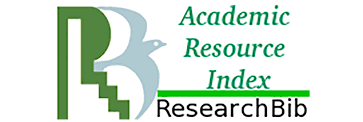Da'wah Messages in the Lyrics of the Song "Sandaran Hati" by Letto (Charles Sanders Peirce's Semiotic Analysis)
Abstract
The problem studied in this study is the da’wa message in the lyrics of the song
Sandaran Hati by the band Letto, the aim of knowing the da’wa message contained in the lyrics
of the song. This study uses a descriptive qualitative approach, with Charles Sanders Pierce's
semiotic analysis technique, and uses the Da’wa Message theory by Moh. Ali Aziz. The results
of this study found that the meaning contained in the lyrics of Letto's song "Sandaran Hati" is
about a servant who is losing his way and is in a downturn in his life but he still believes that
Allah is the place to ask for help and the best place to lean on. The manifestation of the sacred
promise that is bound between the servant and his Lord is to carry out His commands in the form
of prayer. How a servant must be fully aware that prayer is only for a moment but must be done
wholeheartedly (khusyuk) because it can give peace of mind both physically and mentally.
Keywords: Da’wa Message, Song Lyrics, Charles Sanders Pierce's Semiotics.
Downloads
References
Ali Aziz, M. (2009) Ilmu Dakwah edisi Revisi, (Jakarta : Kencana,. Jakarta: PT.
Prenada Media Group.
Ardani, M. (2006) Memahami Permasalahan Fikih Dakwah. Jakarta: Mitra Cahaya
Utama.
Basit, A. (2017) Filsafat Dakwah. Depok: Rajawali Pers.
Hendrawan, A. (2021) Pemanfaatan Digitalisasi Dakwah (Studi Penelitian Media Dai
Persatuan Islam. Sumatera: CV Azka Pustaka.
Jafar, I. and Amrullah, M. N. (2018) ‘Bentuk-Bentuk Pesan Dakwah dalam Kajian AlQur’an’, Jurnal Komunikasi Islam, 8(1), pp. 41–66. doi: 10.15642/jki.2018.8.1.41-66.
Kamaluddin, K. (2016) ‘PESAN DAKWAH’, 02(June), pp. 37–58. doi:
10.24952/fitrah.v2i2.475.
Kasmali, K. (2015) ‘MENURUT HAMKA Kasmali’, Jurnal Theologia, 26, pp. 269–
283. doi: 10.21580/teo.2015.26.2.433.
Mulyana, D. (2005) Ilmu Komunikasi: Suatu Pengantar. Cetakan 8. Edited by Muchlis.
Bandung: Remaja Rosdakarya.
Nurdin, Z. (2008) ‘Jurnal Islami Syi’ar’, pp. 100–109.
Permana, R. (2013) ‘Strategi Komunikasi Dakwah Band Wali dalam Lagu Cari Berkah’,
Jurnal Komunikasi Islam, 03, p. 125.
Poetra, A. E. (2004) Revolusi Nasyid. Bandung: MQS Publishing.
Prodjodikoro, S. (1991) Akidah Islamiyyah Dan Perkembangannya. Yogyakarta:
Sumbangsih Offset.
Saputra, W. (2012) Pengantar Ilmu Dakwah. Jakarta: PT. Raja Grafindo Persada.
Shihab, M. Q. (1999) Fatwa Fatwa Seputar Ajaran Islam. Bandung: Mizan.
Subahri, S. (2015) ‘Aktualisasi Akhlak Dalam Pendidikan’, Islamuna: Jurnal Studi
Islam, 2(2), p. 167. doi: 10.19105/islamuna.v2i2.660.
Sudjiman, P. and V. Z. (1996) Serba-Serbi Semiotika. Jakarta: PT Gramedia Pustaka
Utama.
Syarifah Habibah (2015) ‘Akhlak dan Etika dalam Islam’, Jurnal Pesona Dasar, Vol.1
(4)(4), pp. 73–87. Available at: http://e-repository.unsyiah.ac.id/PEAR/article/view/7527/6195.
Tasmara, T. (1997) Komunikasi Dakwah. Jakarta: Gaya Media Pratama.
Wulandari, T. S., Aliyudin, M. and Dewi, R. (2019) ‘Musik sebagai Media Dakwah’,
Tabligh: Jurnal Komunikasi dan Penyiaran Islam, 4(4), pp. 448–466. doi:
10.15575/tabligh.v4i4.1089.
Yulika, F. (2016) Jejak Seni Dalam Sejarah Islam. Sumatera Barat: Institut Seni
Indonesia Padang Panjang.
Copyright (c) 2023 Proceedings of International Conference on Da'wa and Communication

This work is licensed under a Creative Commons Attribution 4.0 International License.
![]()
Author(s) who publish with this proceeding agree to the following terms:
Author(s) retain copyright and grant the journal right of first publication with the work simultaneously licensed under a Creative Commons Attribution License that allows others to share the work with an acknowledgement of the work's authorship and initial publication in this proceeding.
Author(s) are able to enter into separate, additional contractual arrangements for the non-exclusive distribution of the journal's published version of the work (e.g., post it to an institutional repository or publish it in a book), with an acknowledgement of its initial publication in this proceeding.
Author(s) are permitted and encouraged to post their work online (e.g., in institutional repositories or on their website) prior to and during the submission process, as it can lead to productive exchanges, as well as earlier and greater citation of published work (See the Effect of Open Access).
The Proceedings of International Conference on Da’wa and Communication by the Da’wa and Communication Faculty of the Sunan Ampel State Islamic University Surabaya, Indonesia is licensed under a Creative Commons Attribution-ShareAlike 4.0 International License.





























